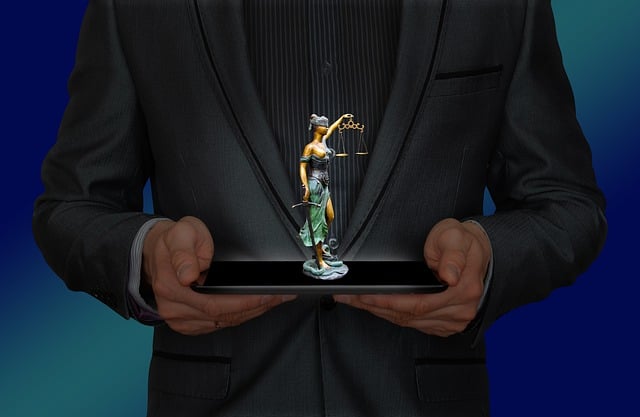Consumer Protection Laws protect individual rights in business transactions, with Environmental Compliance as a key challenge for businesses, especially SMEs, who need proactive measures to balance compliance and profitability. Consumer protection suits present significant legal hurdles, with positive implications for stronger internal controls and sustainable practices if successfully navigated. Businesses must prioritize environmental compliance, stay informed about laws, and implement robust strategies to defend against legal challenges, enhancing public trust and transparency.
Consumer protection suits are a critical aspect of ensuring fair business practices, safeguarding consumers’ rights, and fostering trust. This article explores the intricate world of consumer protection laws, focusing on two key areas: environmental compliance from a business perspective and tackling legal challenges that arise. By delving into these topics, we aim to provide insights for businesses to navigate regulatory hurdles effectively, demonstrating their commitment to ethical standards while mitigating potential risks, especially in light of environmental concerns.
- Understanding Consumer Protection Laws
- Environmental Compliance: A Business Perspective
- Legal Challenges and Their Impact
- Strategies for Effective Defense
Understanding Consumer Protection Laws

Consumer Protection Laws are a crucial set of regulations designed to safeguard the rights and interests of individuals when engaging in transactions with businesses. These laws cover various aspects, from ensuring product safety and quality to prohibiting deceptive marketing practices. Understanding these legal frameworks is essential for both consumers and businesses alike. For businesses, navigating these regulations can present significant challenges, especially regarding environmental compliance. Meeting stringent environmental standards is not only a legal requirement but also a complex task that demands specialized knowledge and resources.
In addition to environmental compliance, businesses often face legal challenges in consumer protection cases. These may include complex litigation with high-stakes outcomes, such as jury trials and winning challenging defense verdicts. Achieving extraordinary results in these cases requires a deep understanding of consumer rights, the ability to present compelling evidence, and strategic legal arguments. The outcome can have far-reaching implications for both the business and the broader industry, setting precedents for future legal challenges and shaping best practices in consumer protection.
Environmental Compliance: A Business Perspective

In today’s regulated business environment, environmental compliance is no longer an optional consideration but a critical aspect that demands meticulous attention. Businesses operating across various sectors face unique legal challenges when navigating complex environmental regulations. These rules, designed to protect our planet, often require significant investment and operational adjustments from companies, especially those with potentially impactful activities like manufacturing or construction.
The pursuit of environmental justice has led to increased scrutiny and strict enforcement by regulatory bodies. While this push for accountability is essential, it presents a formidable challenge for businesses, particularly small and medium-sized enterprises (SMEs). Balancing the need to comply with ever-changing environmental laws while maintaining profitability can be a delicate tightrope walk. Legal strategies aimed at avoiding indictment or other severe consequences for his clients often involve proactive measures such as comprehensive training programs, regular audits, and implementing cutting-edge technologies to minimize environmental impact. Effective general criminal defense tactics also include staying informed about legislative developments and fostering open communication between businesses, regulators, and community groups.
Legal Challenges and Their Impact

Consumer protection suits pose significant legal challenges for businesses, particularly when it comes to environmental compliance. These cases often navigate complex regulatory landscapes, where companies must defend their practices against allegations of non-compliance with environmental laws and regulations. The impact of these challenges is far-reaching, affecting not just the financial stability of businesses but also their public perception and future prospects.
Effective navigation through all stages of the investigative and enforcement process requires robust legal strategies. Businesses face a daunting task in presenting compelling defenses that can lead to winning challenging defense verdicts. Jury trials, for instance, demand meticulous preparation, as jurors must be convinced of the company’s due diligence and adherence to environmental standards. Ultimately, these legal challenges can serve as catalysts for positive change, encouraging businesses to strengthen their internal controls and promote sustainable practices.
Strategies for Effective Defense

In navigating Consumer Protection Suits, businesses must employ robust strategies to defend against legal challenges. One key approach involves prioritizing environmental compliance. Ensuring adherence to relevant regulations not only mitigates potential litigation but also fosters public trust and transparency—crucial for sustaining business operations across the country. For his clients, this proactive stance often serves as a bulwark against indictment, averting costly legal battles and reputational damage.
Moreover, businesses should anticipate legal challenges for businesses by staying abreast of evolving consumer protection laws and industry best practices. Regular reviews and updates to policies and procedures can help in identifying potential vulnerabilities before they escalate into significant issues. This proactive defense strategy not only strengthens the company’s position but also demonstrates a commitment to ethical business conduct, thereby safeguarding against broader environmental compliance legal challenges for businesses.
Consumer protection suits pose significant challenges for businesses, particularly in light of evolving regulations and complex legal landscapes. Understanding consumer rights and implementing robust environmental compliance measures are essential strategies for mitigating risks. Despite these hurdles, proactive approaches—such as clear communication, transparent practices, and effective defense mechanisms—can help businesses navigate legal challenges successfully. By adopting these strategies, companies can foster trust with consumers and ensure long-term sustainability in an increasingly scrutinized market.






